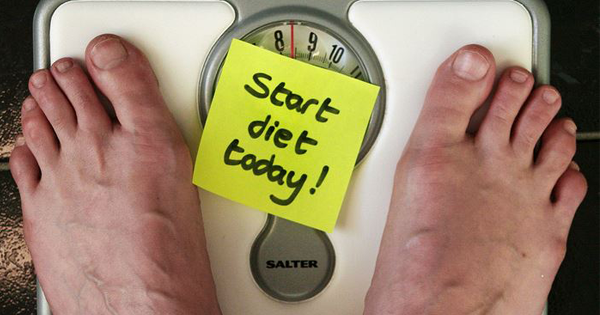Advertisement
Are you constantly putting yourself down for quitting every diet halfway through? Do you always turn to snacks and junk food when you’re feeling stressed?
The problem may not be your willpower alone—it could be stemming from your body’s leptin issues.
Leptin, a hormone secreted by adipose (fat) tissue, helps control hunger and overall feelings of satiety in the body.
Typically, the more fat a person has, the higher their levels of leptin will be. But if leptin’s job is to control hunger, then shouldn’t an overweight person with more of it eat less?
In theory, people with more fat should feel less hungry with higher leptin levels, but that’s where leptin resistance comes in.
What Is Leptin Resistance?
Researchers have long since wondered how somebody with higher levels of leptin can still have an insatiable appetite. What they’ve discovered is that people with too much excess body fat become resistant to leptin’s appetite suppressing qualities over time.
Basically, even if your body has high levels of leptin, your brain might not recognize it. One possible reason for leptin resistance is that fat cells are cranking out inflammatory chemicals that block the action of leptin—causing your body to think it’s starving. As a result, your metabolism will slow down, and your brain will start sending you hunger signals.
Factors That Contribute To Leptin Resistance
While there is no one perfect solution to combat leptin resistance, there are plenty of factors that may be negatively impacting your leptin levels, including:
- Overeating
- Lack of sleep
- Exercising too much
- High stress levels
- Consuming too many simple carbs and sugars
- High insulin levels
How To Fix Leptin Resistance
Though leptin resistance is a complex problem, there are plenty of ways to help balance out your hormones. It’s important to find a diet that actually works with your body to help you lose weight. Starving yourself or exercising excessively will only make your cravings grow stronger and stronger—until you finally cave in and give up on your diet completely.
Here are some incredibly effective ways to improve your leptin response:
- Start your day with a healthy amount of fats and protein—like eggs and yogurt—to help your body stay full and satisfied through the morning.
- Cut simple sugars and starches out of your diet—especially anything containing high-fructose corn syrup.
- Try not to snack throughout the day! If you truly are having problems responding to leptin, it’s important to give your hormones a break. Starting eating healthy, satisfying meals every 3-4 hours to see if it curbs your cravings.
- Go to bed as early as you can, so your body and mind get enough sleep to take on the next day. We tend to crave unhealthy foods, like carbs and sugars, when we’re tired and exhausted.
- Eat more omega-3 fatty acids, like fish, chia seeds, fish oil, and lean meats, to help your body stay full.
Do you think you might have problems with leptin resistance? Let us know in the comments!
Photo Copyright © 2015 Alan Cleaver/Flickr




